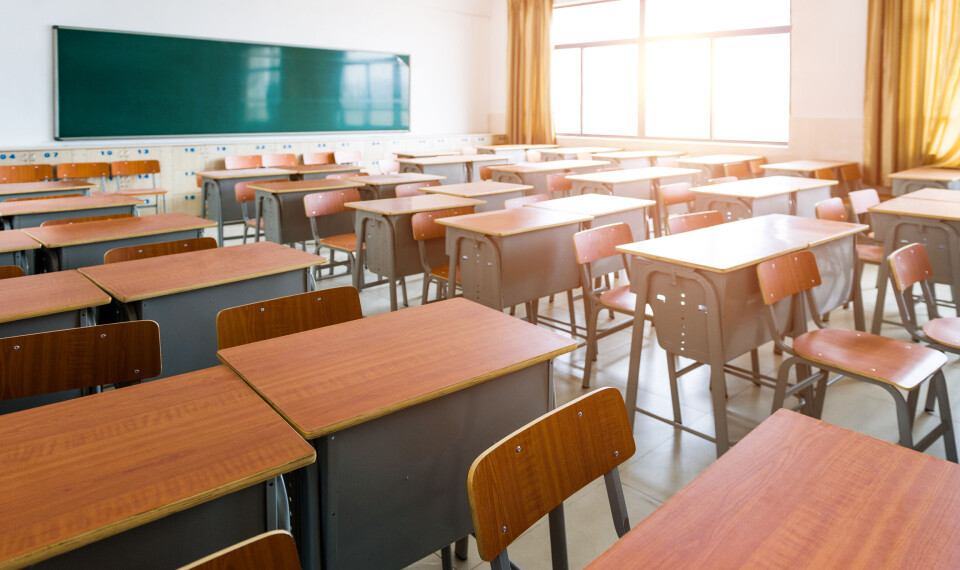-
How many Americans live in Paris - and where else are they choosing in France?
Over a quarter of all US nationals in France live in the capital city
-
Price rises for Netflix in France
The Standard (with ads) and Premium packages are increasing by €24 a year
-
Leclerc supermarkets to sell car fuel at cost price for Easter
The initiative will apply to diesel, petrol, and LPG
What happens if there is a Covid outbreak at my child's French school?
Approximately 3,000 classes have been closed due to positive cases of the virus since the start of the school year

[Article updated on September 14 at 08:00]
Around 3,000 classes have been closed because of a positive Covid-19 case, just over a week after children returned to school in France.
This represents 0.5% of the 540,000 across the country, and compares to the 545 classes which had been closed by September 7.
“We expect this [figure] to grow in the coming days before stabilising and falling once again, if it follows the curve that we have seen every time the children have come back from holiday,” Education Minister Jean-Michel Blanquer told Le Parisien.
“It is this trend that we are seeing in Reunion, where the return to school took place two weeks before that of France.”
Read more: Back to school: Guide to Covid rules for parents and pupils in France
What happens in the case of a Covid outbreak?
It only takes one Covid case for class closure measures to come into force.
In collèges – for 11 to 15-year-olds – and lycées – for 15 to 18-year-olds – any pupil who tests positive for Covid will have to self isolate at home for seven days.
The school will then determine which other members of the class have been in close contact with them.
If the pupils concerned have been vaccinated or have had Covid in the past two months will be allowed to continue their studies in person, although they must be tested immediately after the positive case is confirmed, and then again after a week has passed.
Their vaccination status can be proved through a letter from their parents or guardians or through the French insurance service Assurance maladie.
Those who have not been vaccinated will have to self-isolate for seven days and continue their lessons from home.
For children of 6ème (year 7), who are often not yet 12 years old and therefore cannot be vaccinated, the whole class will close if a Covid case arises.
In nursery schools (maternelles) and primary schools (école élémentaire), the children – aged between three and 10 – the whole class will again be closed for seven days if one pupil tests positive for the virus.
Lessons will continue remotely for the time that the children are at home.
What constitutes a close contact?
If a teacher that tests positive for Covid has been wearing a mask, their pupils and fellow staff members will not necessarily count among their close contacts. The same applies to a pupil.
Close contacts include those who have interacted with others without using infection control measures such as a mask.
The school will consider the situations where social distancing or mask-wearing has been unfeasible, for example, if the Covid-positive pupil has eaten lunch at the same table as their friends.
What if a vaccinated close contact lives with the Covid-positive individual?
When a pupil or staff member identified as a close contact lives under the same roof as the person who was tested positive, they do not necessarily have to quarantine.
If this individual is vaccinated, they must carry out day zero and day seven tests to ensure that they have not contracted the virus themselves. As long as they receive a negative result, they may continue going to school.
Will pupils and teachers have to pay for their tests?
In France, people will have to pay for their Covid tests from October 15.
However, Mr Blanquer has said that: “They will still be free in schools, for children and adults. Outside of school, individuals must follow general rules, meaning that tests will be payable.
Mr Blanquer also said that 67% of 12 to 27-year-olds have had at least one vaccine dose, while 54% are completely vaccinated.
Teenagers are now being offered their vaccination in their collège or lycée, and Mr Blanquer hopes that over three-quarters of this age group will be vaccinated “very soon.”
Nearly 12.3 million pupils returned to school on Thursday, September 2 for a third academic year under the effects of the pandemic.
Related articles
Changes for the new school year in France
Teacher in France: 'Great to get back to school despite Covid rules'
























